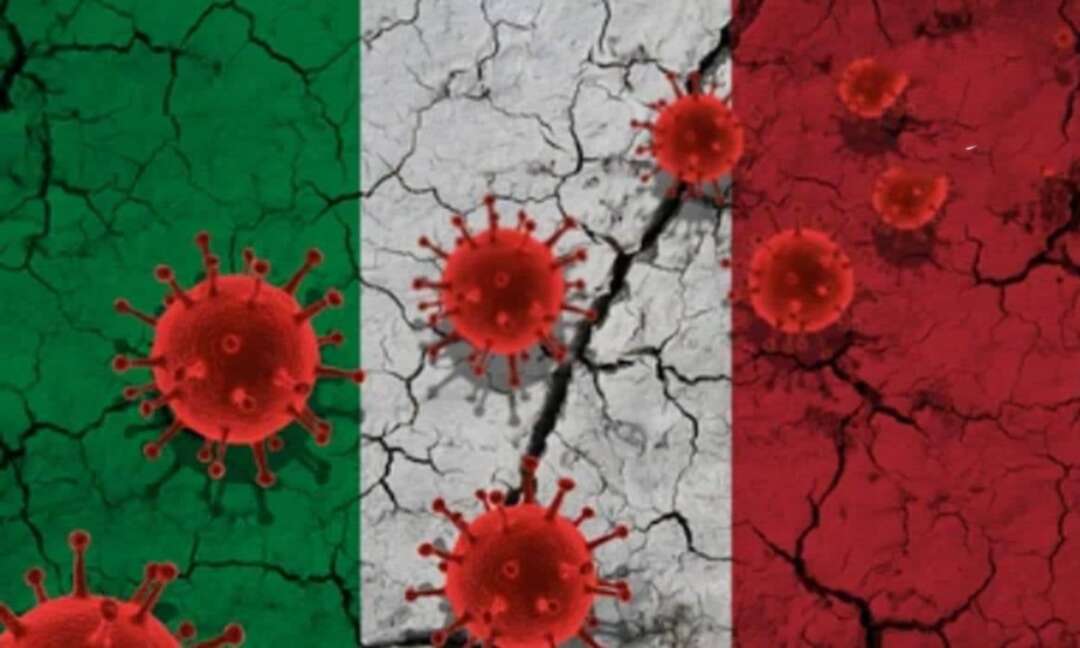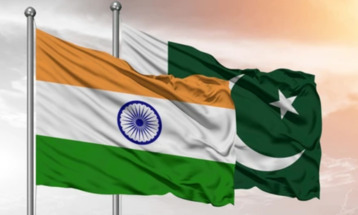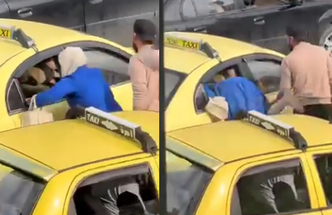-
Italy takes 'practical incentive' to slow spread of Covid-19

The Xinhua reported, citing analysts as saying Italy's decision to make the "green pass" coronavirus health certificate mandatory in certain settings starting next month is meant to be a practical incentive as the country works to curb the spread of the highly transmissible COVID-19 Delta variant. Italy
Mario Draghi, Italy's prime minister, announced on Thursday that the new rules, in effect from Aug. 6, will mandate the "green pass" for anyone over the age of 12 dining or drinking inside a restaurant or bar, or for admission to sports facilities, cinemas, concerts, gyms and other crowded locations.
The xinhua said according to analysts, the measures serve multiple purposes.
"There is a practical aspect to the decision in that limiting crowded indoor spaces will help slow the spread of the virus," Arianna Montanari, a sociologist at Rome's La Sapienza University, told Xinhua.
Montanari said: "But it will also act as an incentive for people who have not been vaccinated to do so."
Draghi made a similar point, telling reporters that he urges "all Italians to get vaccinated and to do so right away. Without vaccinations, we'll have to close everything again."
Italy's vaccine rollout is among the most successful in Europe. As of Friday, just over 29 million people have been fully vaccinated in Italy, equal to 54.1 percent of the population over the age of 12. But in recent weeks, the vaccination progress has slowed.
Italy's "green pass" is part of a wider strategy to avoid the wholesale lockdowns experienced last year during the first big wave of the coronavirus pandemic.
The pass is available to residents who have had at least one vaccine dose; have had a negative coronavirus test within the previous 48 hours; or have recently recovered from COVID-19.
Venues that will require the "green pass" will be equipped with a device that will allow them to check the validity of the digital or printed pass while keeping the holder's personal health status data inaccessible.
According to virologist Fabrizio Pregliasco, director of Milan's Galeazzi Institute of Hospitalization and Scientific Care, the "green pass" strategy and other changes Draghi has announced are part of what he called a "pragmatic, calculated risk" on the part of the government.
"The idea is that by making certain changes the government can slow the spread of the virus without major lockdowns like those last year," Pregliasco told Xinhua. "The goal is to find a balance between many factors."
Pregliasco predicted that requiring the "green pass" for so many activities will be effective in convincing some people who have so far decided against being vaccinated to change their minds.
"I for one will be proud to show my 'green pass' to be able to eat inside a restaurant," Pregliasco said. "Having the pass will be proof that I have done what I can to protect not only myself but also my family and the people around me. Getting vaccinated should be each Italian's patriotic obligation," he said.
The main coronavirus indicators in Italy are worsening, though they remain relatively strong.
The Ministry of Health reported 5,143 new infections on Friday, the second consecutive day with more than 5,000 cases, a level not seen since May.
But the daily infection rate is still well below peaks of more than 25,000 from March.
With 17 new deaths over the 24-hour period ending on Friday, the one-day mortality rate has still not topped 50 since late June, and it remains well below its peak of nearly 1,000 from December 2020.
levant
Source: xinhua
You May Also Like
Popular Posts
Caricature
BENEFIT Sponsors BuildHer...
- April 23, 2025
BENEFIT, the Kingdom’s innovator and leading company in Fintech and electronic financial transactions service, has sponsored the BuildHer CityHack 2025 Hackathon, a two-day event spearheaded by the College of Engineering and Technology at the Royal University for Women (RUW).
Aimed at secondary school students, the event brought together a distinguished group of academic professionals and technology experts to mentor and inspire young participants.
More than 100 high school students from across the Kingdom of Bahrain took part in the hackathon, which featured an intensive programme of training workshops and hands-on sessions. These activities were tailored to enhance participants’ critical thinking, collaborative problem-solving, and team-building capabilities, while also encouraging the development of practical and sustainable solutions to contemporary challenges using modern technological tools.
BENEFIT’s Chief Executive Mr. Abdulwahed AlJanahi, commented: “Our support for this educational hackathon reflects our long-term strategic vision to nurture the talents of emerging national youth and empower the next generation of accomplished female leaders in technology. By fostering creativity and innovation, we aim to contribute meaningfully to Bahrain’s comprehensive development goals and align with the aspirations outlined in the Kingdom’s Vision 2030—an ambition in which BENEFIT plays a central role.”
Professor Riyadh Yousif Hamzah, President of the Royal University for Women, commented: “This initiative reflects our commitment to advancing women in STEM fields. We're cultivating a generation of creative, solution-driven female leaders who will drive national development. Our partnership with BENEFIT exemplifies the powerful synergy between academia and private sector in supporting educational innovation.”
Hanan Abdulla Hasan, Senior Manager, PR & Communication at BENEFIT, said: “We are honoured to collaborate with RUW in supporting this remarkable technology-focused event. It highlights our commitment to social responsibility, and our ongoing efforts to enhance the digital and innovation capabilities of young Bahraini women and foster their ability to harness technological tools in the service of a smarter, more sustainable future.”
For his part, Dr. Humam ElAgha, Acting Dean of the College of Engineering and Technology at the University, said: “BuildHer CityHack 2025 embodies our hands-on approach to education. By tackling real-world problems through creative thinking and sustainable solutions, we're preparing women to thrive in the knowledge economy – a cornerstone of the University's vision.”
opinion
Report
ads
Newsletter
Subscribe to our mailing list to get the new updates!






















